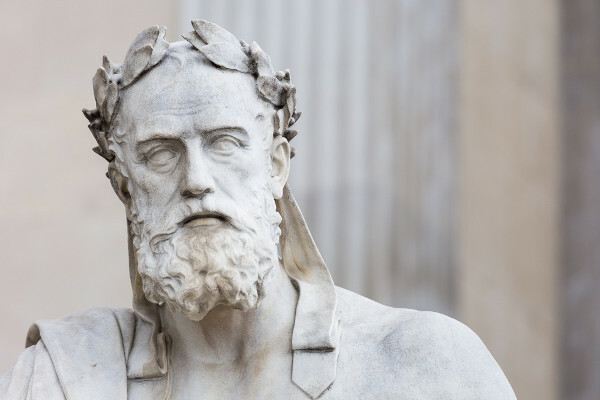The theory of knowledge, or gnosiology, is an area of philosophy aimed at understanding the origin, nature and form that make the act of knowing by human beings possible.
As a discipline of philosophy, the theory of knowledge emerged in the Modern Age, having as its founder the English philosopher John Locke.
Gnosiology or gnoseology (from the Greek gnosis, "knowledge and logos, "discourse") is related to the act of knowing, based on the relationship between two elements:
- the SUBJECT - the one who knows (be cognizant)
- the OBJECT - what can be known (knowable)
Based on this relationship, it is possible to know something and establish different ways for knowledge, or rather, for apprehending the object.

Forms of Knowledge
There are several possibilities to understand or explain some phenomenon. Philosophy itself is born from the need to seek a different way of understanding the world. The explanations given by the myths were no longer sufficient and some men sought a safer and more reliable form, Philosophy.
When we talk about forms of knowledge we can talk about:
- mythology
- common sense
- philosophy
- science
- religion
Philosophical knowledge differs from other knowledge due to the specificities of each one of them. Due to its logical and rational character, philosophy distances itself from mythology and religion because this knowledge is based on belief and there are no proofs or demonstrations.
Due to its universal and systematic character, it moves away from common sense because it works based on particular experiences.
And, as it does not have a specific object of study such as the sciences (for example, chemistry, physics, biology, sociology, etc.), philosophical knowledge has a specific form among the several types of knowledge.
Philosophy is concerned with the totality of knowledge and within this totality is the theory of knowledge.
Epistemology
Philosophy is born from questioning and the search for a logical-rational way to explain the origin of the world. The first philosophers questioned the fanciful explanations given by myths and sought to reach a new type of knowledge based on their critical spirit.
“In fact, men began to philosophize, now as at the beginning, out of admiration, as they were initially perplexed by the simplest difficulties; then, progressing little by little, they came to face ever greater problems.” (Aristotle, Metaphysics, I, 2, 982b12, trans. Reale)
From the admiration that is born, in the words of Pythagoras, the "love of knowledge" (philo + sophia). The philosophical attitude consists in looking at what is most common and usual as if it were something new to be discovered.
Socrates earned the title of "Father of Philosophy" even though he was not the first philosopher. It systematized the philosophical attitude as the search for a valid, secure and universal knowledge capable of acting with a theoretical basis for new knowledge and philosophical awareness.
And it was his disciple Plato who, throughout his work, sought to define two distinct types of knowledge: doxa ("opinion") and the episteme ("true knowledge"). And, from there, when we talk about knowledge, we are directed to general questions relating to true knowledge, scientific knowledge, the Epistemology.
The study of scientific knowledge has a subdivision that refers to Logic and Theory of Knowledge. And it is the theory of knowledge that will be treated with more attention here in the text.
See too: Greek Paideia.
Knowledge and Objects
It is important to understand that the theory of knowledge is not about the apprehension of each object specifically, but about the general conditions for human knowledge and its relation to everything that can be known (the totality of objects).
As stated earlier, the theory of knowledge is not concerned with specific knowledge, for example, knowledge about politics, football, arts or chemistry, but with understanding how the act of knowing operates.
For this, it is necessary to realize that the object to be known has two central aspects. It exists outside the human mind, but, on the other hand, it can be understood as the human mind itself giving meaning to reality.
The relationship of the knowing being with the knowable object produces a series of knowledge that we call knowledge.
In this way, throughout the philosophical tradition, several explanations have been given to the question "what is knowledge?". Here are some examples of answers given to this question.
As for the possibility of knowledge:
| Philosophical Current | Key Points |
|---|---|
| Dogmatism | Believes that everything can be known. The relationship with knowledge is based on unquestionable truths (dogmas) guided by reason. Everything can be known. |
| Skepticism | Understand that the subject is not able to grasp the object. There are limits to knowledge and human reason. Full knowledge is impossible. |
As for the origin of knowledge:
| Philosophical Current | Key Points |
|---|---|
| Rationalism | Knowledge comes from reason. All knowledge is based on Reason. The senses deceive us. |
| Empiricism | Knowledge comes from experience. It is from the senses and perceptions that we relate to the world and we can know something. |
Want to know more? Check the texts:
- Philosophical Idealism
- Scientific Method
- empirical knowledge
- Metaphysics
- Aristotelian Logic
- What is philosophy for?
- What is a philosophical attitude?
- Philosophy Exercises
- Brazilian Philosophers You Need to Know

